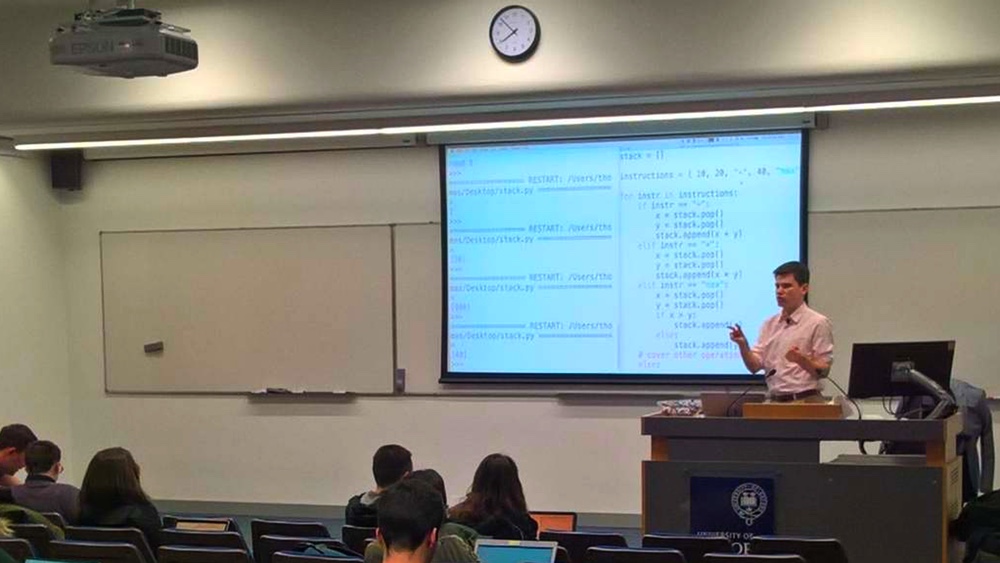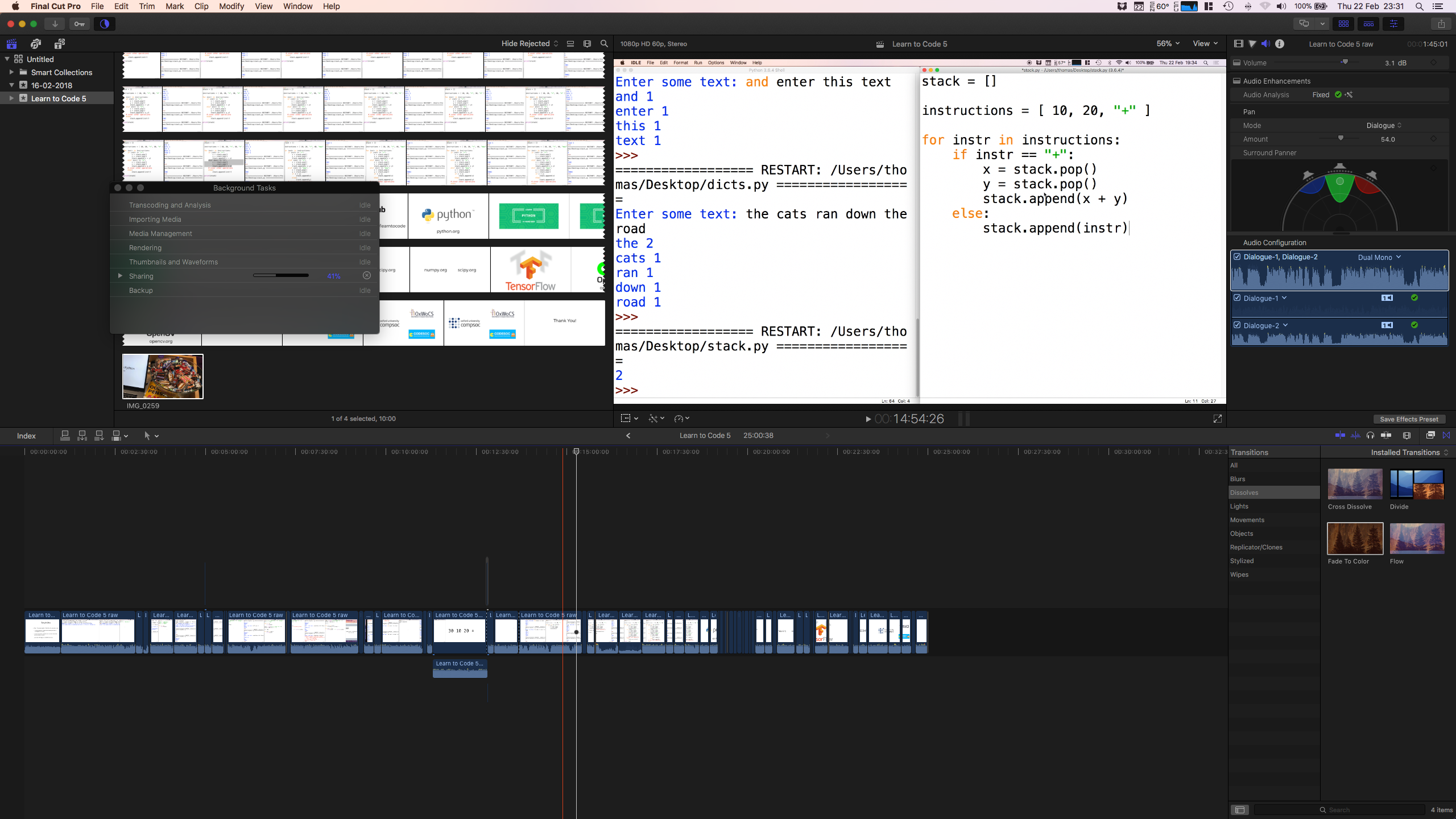Learn to Code 2018
March 9, 2018

Over the course of the last term I presented five introductory Python sessions as part of the Oxford University Computer Society’s Learn to Code series. This year we saw the highest demand ever for the course, with over 1,100 people “interested” on Facebook and more than 200 attending the sessions — we packed out both lecture theatres in the Department of Computer Science!
All of the session materials from the course are available here. Note that this is my personal fork of the course materials with the version that I presented (it is quite likely that a future commmittee will present a different version next year). A playlist of all the screen recordings is available on YouTube. This was the first time I’d ever done any video editing, but in the end it turned out to be more of an exercise in audio editing.

The first video was edited entirely in iMovie, but from the second session onwards all the video was edited in Final Cut Pro. I imagine that iMovie would have been sufficient for all the videos, but I fancied trying out Final Cut Pro.
We used a Focusrite Scarlett Solo interface along with the cheapest wireless mic I could find on Amazon to record the audio. I later had to redub a few of the sessions due to recording issues in the lecture theatre, but most of the audio was recorded live. The sessions recorded in the lecture theatre sound a lot better and, as a friend commented, avoid the “teenager making Minecraft videos” vibe. I struggled to get audio levels right until the very end of the course, so many of the early videos are far too quiet. By the end of the course I was also a lot more leniant in what I allowed through the editing process; some of the early sessions don’t have a single utterance of “erm”, “OK”, or “so” but by the end I gave up and tried to keep the editing process straightforward.
It would have been nice to record video for the session in addition to the screen captures, but a lack of preparation on my part killed this plan. Besides, each session required around a total of ten hours a week to prepare the resources, reheasrse, execute the session, and then edit the video and I don’t think I could have spared much more time out of an already packed term.
I am indebted to the dozen-or-so Oxford CS students that dedicated their Thursday evenings with me to run the course this year, in particular to Sauyon Lee, who presented sessions in a second lecture theatre. The student helpers managed everything from registration to helping out students with exercises, which allowed me to focus on just the presentation during the sessions.
Although Learn to Code was undoubtedly my greatest success as president of Oxford’s Computer Society, there are many ways in which the course could be improved, and I leave this advice to my successor next year:
- Don’t be afraid to go slowly. In the first session I discovered that around half the audience had done some programming before, and sped up the session to cater for them. This was a mistake — I should have continued with my plan to aim the content at complete beginners
- Encourage students to do exercises as much as possible, as early as possible. A small number of students went away and did nearly every exercise in the notes, and they definitely made the most progress over the course
- Provide other materials that students can look at after the course or between sessions
- Video editing is really hard! If the next committee plans to film the 2019 sessions then I hope they can find somebody that can edit the video content, because it certainly consumed far too much of my time
- Focus on getting syntax right before introducing algorithms. My experience this year and last year was that once students mastered the basics of Python syntax they were far more able to solve problems than introducing algorithms and syntax concurrently. We definitely introduced the binary search algorithm too early this year, for example
Overall, teaching Learn to Code this year was an absolute pleasure. Even after relatively high demand for the course last year I was shocked to see so much demand this year, and I loved seeing so many students returning each week.
At the beginning of term I met with David Malan, the originator of Harvard’s CS50 course, and after hearing of such high demand at Harvard for a programming course I was delighted we could replicate similar demand on this side of the pond. I wish the very best to my successors teaching our course, and I’ve no doubt its popularity will continue to grow.